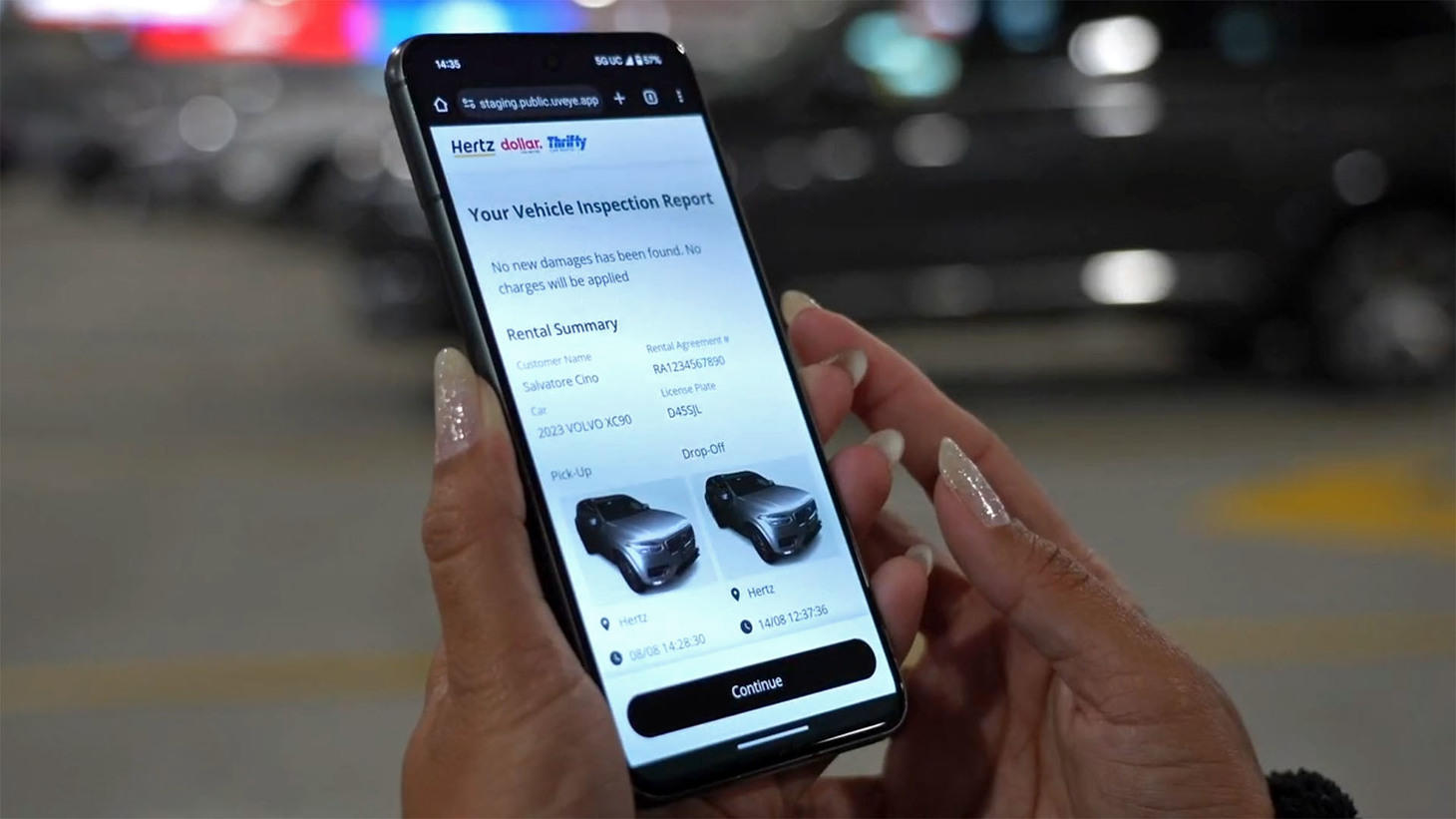Financial Results
Donegal Group's Strategic Turnaround and Underwriting Discipline: A Path to Sustainable Growth in a Challenging P&C Market
In the volatile world of property and casualty (P&C) insurance, where margin compression and catastrophic losses are perennial threats, Donegal Group Inc. (NASDAQ: DG) has carved out a compelling narrative of disciplined execution and strategic reinvention.
Over the past two years, the company has demonstrated a rare combination of operational rigor, investment prudence, and technological foresight—factors that position it as a standout in a sector often plagued by short-termism. Let's break down how Donegal's strategic pivot is unlocking long-term value.
Underwriting Discipline: The Bedrock of Sustainable Profitability
Donegal's recent focus on underwriting discipline has been nothing short of transformative. In 2024, the company achieved a 3.5-point decline in its core loss ratio, driven by aggressive premium rate increases and the deliberate pruning of underperforming personal lines business. This “quality over quantity” approach has stabilized margins while preserving customer retention. For Q2 2025, the core loss ratio continued to improve, a testament to the company's ability to balance growth with risk management.
This strategy mirrors the playbook of industry leaders like Markel MKL (+1.16%) and AmTrust, which have shown that disciplined underwriting can compound shareholder value over time.
AI in Insurance

How Human-First InsurTech Can Disrupt The $1.5 Trillion Sector
People often think insurance innovation will replace agents, but it actually reshapes their role in new ways. Digital technology keeps changing insurance product delivery and might reshape business models completely.
Yet human expertise remains essential with InsurTech companies, as the U.S. life insurance and annuities market is projected to hit $1.54 trillion by 2029, according to Statista. This is why Tray Honeycutt, founder of Honeycutt Insurance, is leaning into how insurance agents are leading innovation through a people-first strategy that blends new technology with valuable personal expertise.
The agent-centric model remains more relevant than ever, even as digital solutions grow. Technology advances rapidly, yet human connection stays central to insurance distribution. An Accenture study shows 49% of insureds want to speak with a human advisor when filing a claim. Only 12% prefer automated services and 7% would use a chatbot. For multicultural communities who often rely on trust-based relationships in financial decisions, the value of human guidance cannot be overstated.
When most InsurTech companies are focused on cutting out the middleman, Honeycutt is doubling down on keeping people at the heart of the process. Instead of automating agents out of the equation, his model flips the script: equip, empower, and elevate. By pairing cutting-edge technology with hands-on mentorship, Honeycutt Insurance is transforming the insurance industry into an ecosystem where leaders are made, not replaced.

It's Not Just Hertz: AI Damage Scanners Are Spreading to More Rental Car Companies
A growing number of rental car brands, like Sixt, are using AI scanners to assess damage and it's leading to problems, as multiple customers tell The Drive.
The attention on digital vehicle rental scanners using artificial intelligence may have started with Hertz, but it’s not the only player in the business that has introduced the technology—and it surely won’t be the last. Competitor Sixt is using scanners, too, and two customers recently wrote The Drive to explain how the company charged them for damage it later admitted was already present on its vehicles.
There is reason to believe Avis may also be rolling out digital inspections, too.
The Drive separately reached out to Avis Budget Group and Enterprise Mobility (which also includes the National and Alamo brands) to confirm at the corporate level whether each company uses scanners for rental inspections. An Avis representative didn’t answer that question specifically, but said that “the damage assessment process at Avis remains human-led. While certain technologies, including AI, may be used to support internal efficiencies, they do not replace the judgment or involvement of our employees. Delivering fair, transparent, and service-driven experiences for our customers remains our top priority.” It’s worth noting that Avis previously tested an AI-based system developed by a company named Ravin at London Heathrow Airport back in 2019.
As for Enterprise, that company was more direct in its response, unequivocally denying use of the tech. “Enterprise Mobility is not using digital damage scanners at check-in, check-out, or in our damage review process for any of our car rental brands, which includes Enterprise Rent-A-Car, National Car Rental, and Alamo,” the company told The Drive over email.
Fraud
The Fraud Fight's New Frontier | Insurance Thought Leadership
Criminal gangs are creating synthetic identities, insuring them and killing them off. Insurers are falling behind in the AI arms race.
Richard is 5-foot-7 and weighs 237 pounds. He works as a radar controller, and his mother's maiden name is Walters. Richard has an email address (richardtmacias@jourrapide.com), a phone number (856-596-####), and a Social Security number (136-18-####). He pays for most of his purchases with his Visa card (4532-3836-4287-####, expiring on 4/2028, with a security code of 056).
Richard is also completely made up.
It took less than a minute to create Richard Macias on a site that will deliver a spreadsheet of thousands of synthetic identities with detailed personal information directly to your inbox – for free.
The website's FAQ asserts: "We do not condone, support, or encourage illegal activity of any kind." Information is pulled from available public databases in random combinations. Using the street address as an example, this randomness means, "Odds are that the generated street address is not valid," according to the FAQ.
A different free artificial intelligence (AI) program provided a photo of Richard outside New Jersey's famous theme park, Six Flags Great Adventure. That took less than five minutes.
Research

Insurer retention and the rise in insurance shopping
Customer loyalty isn't something insurers can take for granted anymore.
A recent **J.D. Power** study suggests insurance-price shopping is on the rise. How might the rise in shopping impact insurer retention strategies?
More people shopping around for auto insurance is a clear sign that consumer behavior is shifting. In a market where buyers have the upper hand, loyalty isn’t something insurers can take for granted anymore. Customers are quicker to switch if they don’t feel like they’re getting real value. Insurers need to utilize both pricing and non-pricing related tools to maximize their competitiveness in a shopper’s market.
Why Progressive’s Customer Scores Lag State Farm, GEICO: J.D. Power
When it comes to personal auto insurance, Progressive has been outpacing GEICO and State Farm in terms of growth and posting better loss ratios for years. But customer satisfaction scores are another matter.
The J.D. Power 2025 U.S. Auto Insurance Study, published last month, summarized satisfaction scores calculated from insights J.D. Power gathered from over 48,000 auto insurance customers surveyed across 11 geographic regions. Consistent with prior rankings, smaller insurers (writing across less than half the states, and some in just one state) tend to dominate the top spots in the 2025 listings.
Turning to the largest national writers for which the J.D. Power report reveals satisfaction scores in all 11 regions, Progressive consistently ranks below State Farm, GEICO and Allstate in all regions.
Climate/Resilience/Sustainability
California Department of Insurance Completes Final Review of Wildfire Model
The California Department of Insurance completed a review of the state’s first wildfire catastrophe model, marking a dramatic change in the state’s property/casualty insurance ratemaking process.
The new model for use by insurers in assessing wildfire risk in property insurance ratemaking, which was created under under the state’s new regulatory framework to address a growing homeowners insurance crisis in California, was developed by the Extreme Event Solutions business of Verisk.
Commentary/Opinion

What 'The Godfather' Taught Me About AI Governance In Insurance | Insurtech Advisors
[Ed. Note: Interesting and insightful piece from Kaenan Hertz]
I was rewatching The Godfather last weekend when something clicked. The parallels between running a “family business” like the Corleones and governing #AI in insurance companies are surprisingly strong. Both require strict codes, clear authority structures, and serious consequences for violations.
The insurance industry is at a crossroads with AI. We want the power and efficiency it brings, but without proper governance, we risk creating digital monsters we can’t control. Moreover, with over 24 states adopting NAIC’s AI Model Bulletin to emerging state and federal frameworks, insurers are seeing clear signals: responsible AI isn’t optional—it’s becoming a regulatory expectation.
Kaenan Hertz is a professional in the areas of block chain, telematics, wearables, analytics, artificial intelligence (AI) and Insurtech. He has played a key role in innovating many start-ups and established carriers. His advice has been widely appreciated in the financial community, which resulted in multiple quotes and publications in various media.
People

CEO to retire at Munich Re -
Munich Re announced Wednesday that CEO Joachim Wenning will retire at the end of the year and be succeeded Jan. 1 by Chief Financial Officer Christoph Jurecka.
For personal reasons, Mr. Wenning does not want to continue in his role on the board of management beyond Dec. 31, Munich Re said in a statement. He took the helm as CEO in 2017.
Mr. Jurecka joined Munich Re in 2011, initially as a member of the board of management of Ergo Group AG. He joined Munich Re’s board of management as CFO in 2019.
Today

Hulk Hogan and the Insurance Ecosystem | Insurance Thought Leadership
[Ed. Note: Excellent commentary on this article posted by Bill Brower, Senior Vice President, Global Industry Relations & North America Claims Sales, Solera, Inc. .....
"Alan, this was a refreshingly insightful article that cleverly draws parallels between Hulk Hogan’s branding mastery and the challenges insurtechs face in standing out. Your perspective on the importance of identity, strategic connection, and understanding your audience deeply resonates in today’s evolving insurance ecosystem. A timely reminder that even in a conservative industry, a bit of calculated showmanship—backed by substance—can go a long way."
Publicly known as Hulk Hogan, Terry Bollea was more than a wrestling icon. Although I was not an enthusiast and never have even watched a match in my time, I knew Hogan by name, as his brand was far-reaching. At 71, he was still recognizable by most. Hogan knew his collective audience well and catered to what they craved. When it comes to marketing and promoting, he will go down as one of the best
There are many lessons wrapped up in his lasting 50-year presence that apply to business and especially those companies building their brands and wanting to distinguish themselves. Looking beyond the flashy character and controversial persona, you can see how he carefully connected business with identity and made it stick for a long, long time. Most of all, he stood out in the wrestling entertainment space and appealed to other business revenue streams. By contrast, of all the other WWF characters, some had a recognized brand, others not so much.
INSURTECH IMAGE AMONG A CROWD I think of start-up insurtechs and their efforts to stand out in a crowded field. Today’s insurtech landscape broadly consists of technology solution and service providers evolving from the early days of digital disrupters to a concentration of those wanting to collaborate and partner with insurers in nearly every facet of the insurance model. Although the disruptive spirit still thrives, new entrants and incumbent providers recognize the massive barriers to contracting with carriers, especially in attracting their attention in the first place. The lessons from Hulk Hogan, in the right dosages, can make a difference.
On the carrier side of this market reality, companies are still challenged with identifying, vetting and testing insurtechs. There are countless difficulties in distinguishing solution offerings, as many appear similar. Hogan clearly recognized this issue. Each wrestler had his own identity, but from afar, most would say “it all looks the same.” Factor in real issues, like finite resources, budgets and decision-maker availability. Also consider de-risking and all sorts of project priorities, and you have a mismatch when it comes to insurers and insurtechs trying find ways forward together.
Alan Demers is founder of InsurTech Consulting, with 30 years of P&C insurance claims experience, providing consultative services focused on innovating claims.
Cyber Risk
Allianz Life says majority of US customers' data stolen in hack
U.S. insurance giant Allianz Life said on Saturday that hackers stole the personal information of the majority of its customers, financial professionals, and select Allianz Life employees in the United States.
The insurance giant's filing with Maine's attorney general did not immediately provide the number of customers affected.
As per the filing, the data breach, which the company described as a hack, occurred on July 16 and was discovered on July 17.
The data breach was first reported by TechCrunch.
"On July 16, 2025, a malicious threat actor gained access to a third-party, cloud-based CRM system used by Allianz Life Insurance Company of North America (Allianz Life). The threat actor was able to obtain personally identifiable data related to the majority of Allianz Life’s customers, financial professionals, and select Allianz Life employees, using a social engineering technique," a spokesperson for Allianz Life told Reuters in an emailed statement. This incident is related only to Allianz Life in the U.S., which currently has 1.4 million customers, the company said.
The insurance giant said it notified the FBI and based on its ongoing investigation that there is no evidence the Allianz Life network or other company systems were accessed, including their policy administration system.
The Silver Tsunami: How Elder Fraud is Fueling a Cybersecurity and Financial Protection Goldmine
The United States is facing a silent crisis: elder fraud losses have surged to unprecedented levels, with seniors losing over $3.18 billion in the first quarter of 2025 alone. The Federal Trade Commission (FTC) reports that Americans aged 60 and older accounted for nearly $745 million in losses during this period, a 200% increase compared to 2024. As the population ages—by 2030, all baby boomers will be over 65—the demand for tailored cybersecurity and financial protection solutions is set to explode. For investors, this crisis represents a golden opportunity to capitalize on a $290 billion cybersecurity market and a rapidly growing InsurTech sector.
The Perfect Storm: Demographics + Digital Vulnerability
The aging population's embrace of digital banking, e-commerce, and social media has inadvertently exposed them to a new wave of sophisticated scams. Scammers are leveraging AI-generated voices, deepfakes, and "pig butchering" schemes (where victims are groomed online for crypto fraud) to exploit seniors. The FBI's 2024 report revealed that older adults lost $4.9 billion to fraud, with an average loss of $83,000—43% higher than the prior year. Meanwhile, AARP found that 41% of U.S. adults have experienced fraud, and 59% fear becoming victims.
This demographic shift is creating a perfect storm: an aging population increasingly reliant on digital tools, paired with a surge in targeted cyberattacks. The result? A booming market for companies offering elder-focused fraud detection, digital literacy programs, and secure financial safeguards.

